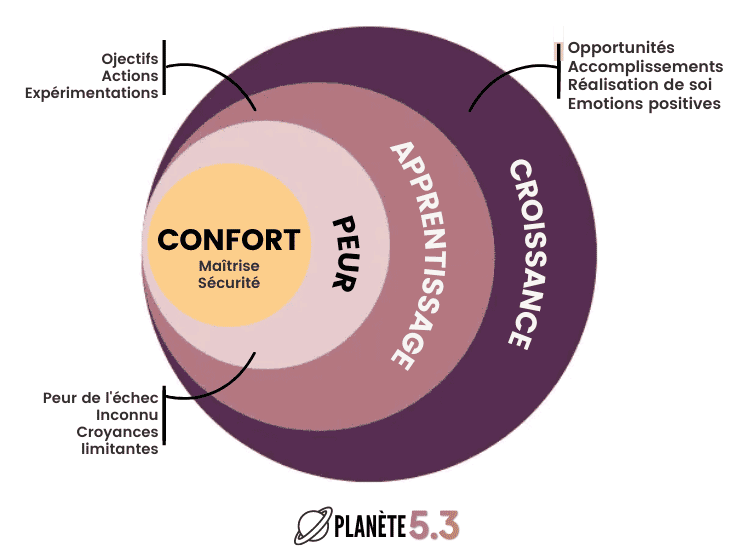
Do you fear that one day you will be unmasked? You have the impression of deceiving the world, of not being in your place, of not deserving your job, your success, your family or your friends… If your modesty is excessive and if your self-confidence is lost, you You may be suffering from imposter syndrome.
From driving licenses to professional promotions to university exams, the impostor feels likeusurp one’s positionof not being in the right place, in the right role, and always above what he deserves. His success always comes from an external element, never from his skills.
What is imposter syndrome?
The biggest fear he has? The fear thatwe discover the pot-aux-rosesthat the house of cards collapses and he ends up losing everything. So he works even more and a vicious circle sets in.
But it’s not a mental illness. Imposter syndrome is simply the antithesis of the feeling of legitimacy. It looks like the “ survivor’s guilt“. There is a guilt in being among those who succeed, where others who seemed better (or at least as good) have failed.
— Announcement —
This is a very common feeling since those who have studied the phenomenon believe that 70% of people are led to doubt, one day or another, of their skills. Fortunately, not everyone experiences imposter syndrome.
And does this concern you?
If you answer “yes” to the following questions at least three times, you may be affected by this famous syndrome:
- At work, you never feel like you’ve done enough.
- You have difficulty accepting compliments.
- You often feel like you don’t belong.
- For each mission, you work harder than all your colleagues.
- You find that your colleagues are better than you.
- You are more of an anxious nature.
Big stroke of luck
Impostor syndrome can occur at major transitional stages in life, such as entering high school, your first job, a promotion or even a change of position. At these key moments, people feel overestimated and tend to attribute their success to factors like luck, chance or relationships, not to their skills.
Therefore, two work strategies are often adopted, both of which fuel the feeling of imposture:
- Either we procrastinate, putting everything off until tomorrow, and doing everything at the last minute.
- Either, we work hard and tirelessly to try to fill the lack of skills with a certain dedication to the task.
When success paralyzes…
In people with imposter syndrome, there is no match between their self-image and their true skills. They need theopinions of others to assess their merit.
In small doses, the fact of doubt your skills is rather healthy and constructive because it can stimulate personal investment. But it can become problematic when doubt forms an anxious loop that persists and feeds itself with successes.
This is very often the case among people who, within an organization, are alone in their field of expertise, and little contact with their peers. For example, the IT manager in a transport SME or a small plumbing company. Frequently, these employees experience a feeling of deception because they have the impression that thewe expect a lot more from them than this is really the case.
How to get rid of imposter syndrome?
First of all, it is about working to strengthen your self-confidence and become aware of your know-how. Make a skills assessment perhaps a fruitful approach in this direction.
There is also theself-hypnosis training which can help the individual to anchor new ideas about themselves. You will have to practice it every day, for several consecutive weeks.
In the same vein, the person can repeat things to themselves mantras several times during the day, for example “ I am legitimate in my position ” Or ” I am responsible for my family“, always in the present tense and in the affirmative mode.
Even better, it can associate memories or tangible proof that attest to its legitimacy. She will thus be able to write in it this statement. This can give: “ I am competent in my work because I received congratulations for the last two files that I prepared. »
Imposter syndrome is often linked to a feeling of inferiority crystallized in childhood and which resurfaces later. When the feeling of doubt becomes truly debilitating and hinders daily well-being or leads to depression or a persistent feeling of anxiety, you should not hesitate to consult a health professional.







